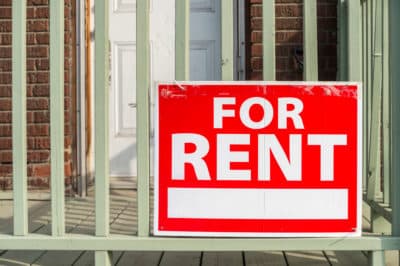Pasadena passed Resolution No. 9970 on December 22, 2022, certifying that voters approved the Pasadena Charter Amendment Initiative Petition Measure Imposing Rent Control, also known as Measure H. Measure H prevents landlords from raising rents unreasonably and evicting residents without reasonable cause. If you’re a landlord, you must understand how to navigate this measure with tenants when reviewing rental contracts. A landlord-tenant attorney with experience handling such disputes can advise landlords in making the right choices with their tenants.
What is the Pasadena Rent Stabilization Ordinance?
The purpose of the Pasadena Rent Stabilization Ordinance is to give tenants the right to reasonable notice of rent increases and evictions from their landlords. Landlords must adhere to the regulations under the ordinance to ensure their compliance. They include the following guidelines:
How Much Can a Landlord Raise Rent in Pasadena 2023?
Every year, the Pasadena Rental Board announces the amount of the Annual General Adjustment for rent on September 1st. The adjustment takes effect on October 1st. The adjustment is equal to 75% of the percentage increase for the Los Angeles-Riverside-Orange County’s Consumer Price Index. The annual adjustment is 0% if the Consumer Price Index is negative.
When Can a Landlord Increase a Tenant’s Rent?
Rent increases must occur once within the 12 months from October 1st of the current year and September 30th of the following year. If a landlord fails to implement the rent increase according to the annual adjustment period, they cannot defer it.
What is the Notice Period for a Pasadena Landlord to Increase Rent?
Tenants must receive notice of a rent increase 30 days in advance. A notice must include the following details:
- Information about the Pasadena Rent Stabilization Ordinance
- Statement of the tenant’s right to petition an alleged excessive rent increase, except when the Pasadena Rental Board grants the increase
- Notice of no rent increase unless the landlord complies with the Pasadena Rent Stabilization Ordinance’s requirements
What Are the Limits on a Landlord’s Right to Raise a Tenant’s Rent in Pasadena?
Landlords cannot increase the rent if they fail to complete one of these:
- Non-compliance with the Rent Stabilization Ordinance and the Rental Board regulations
- Uninhabitable unit violating California’s Civil Code Section 1941.1 and Health and Safety Code Sections 17920.3 and 17920.10
- Lack of repairs as ordered by the Hearing Officer, the Rental Board, or Pasadena
When Can Landlords Evict Tenants?
A tenant eviction requires the landlord to provide just cause for initiating the eviction process. These causes include:
- Not paying rent
- Breaching a lease
- Causing a nuisance resulting in the rental unit’s damage
- Using the rental unit for an illegal purpose
- Refusing to execute a new lease upon agreement with the landlord
- Not allowing access to the landlord to enter the unit
- Renting out a rental unit to an illegal subtenant
What Types of Notices Should Landlords Give for Evictions Completed in Good Faith?
Landlords can evict a tenant in good faith with a 30-day advance notice for a temporary vacancy if a rental unit requires substantial repairs. However, if a landlord or a relative, such as a spouse or child, wants to move into the rental unit, the tenant must receive an eviction notice 6 months in advance. In case of demolition of the rental property or a landlord’s decision to remove units from the rental market, tenants must receive a minimum of 180-day eviction notice. Tenants with disabilities or seniors must receive the notification within one year of the eviction. Evictions completed in good faith require landlords to provide relocation assistance. A written eviction notice must require landlords to provide at least 50% of the required Relocation Assistance within 10 days.
Does Rent Control Work?
While rent control provides some relief to tenants, it may not necessarily solve the problem of housing insecurity and affordability. In a 2019 study of a San Francisco rental control expansion in 1994, researchers found tenants living in rent-controlled apartments were 10% to 20% more likely to stay in their homes. However, landlords converted apartment units into condos, reducing the amount of rental housing by 15%. This reduction likely contributed to the increase in rental prices in San Francisco. The efficacy of rent control remains a topic of ongoing debate and litigation. For instance, the California Apartment Association (CAA) filed a lawsuit against the City of Pasadena concerning Measure H. The CAA alleges the measure’s requirement for relocation assistance violates the rights of landlords with units protected under the Costa-Hawkins Rental Housing Act. While the CAA’s lawsuit is pending, Pasadena must continue implementing Measure H.
How Marinaccio Law Can Help
Landlords must track how Measure H might affect their rights to increase rents and evict tenants when necessary. If you’re a landlord concerned about rental increases for 2023 and beyond, work with a Pasadena real estate attorney from Marinaccio Law. We will help create beneficial agreements between you and your tenants that abide by Pasadena’s ordinance. Contact us to schedule a consultation for your case.


